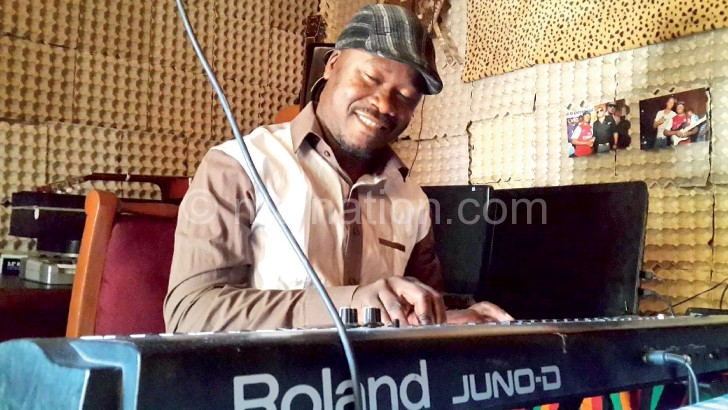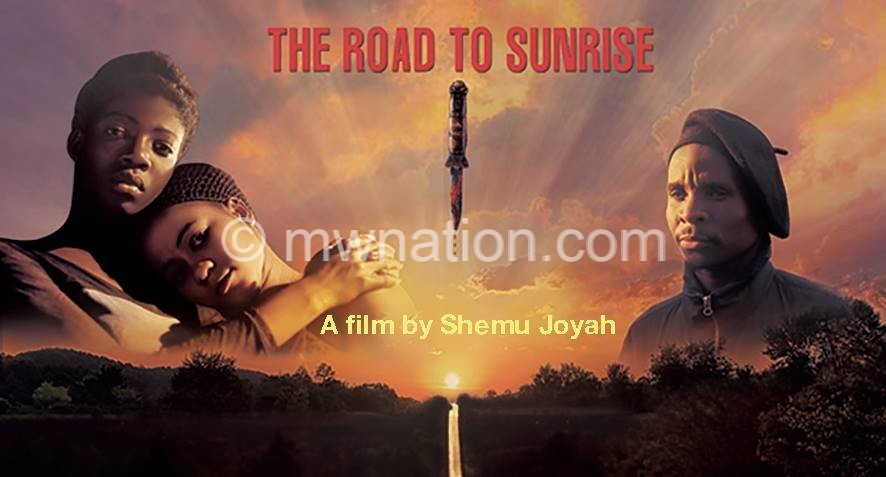Life after Parliament ain’t easy
Musician Joseph Tembo is one of the country’s talented artists who doubles as a producer. He has been around in the music industry for many years, releasing his own music as well as producing that of other artists. From 2009 to 2014, the musician had a stint with politics as member of Parliament (MP) for Chikwawa South. But three years after losing his parliamentary seat, Tembo is back into the studio, making beats on full time basis. Tembo speaks to HOWARD MLOZI about his music and life after parliament:

Q: Can you take us through music journey?
A: As a music producer, I started producing serious music around 1996. First serious productions to lay my hands on and catapulted my name to stardom were Billy Kaunda’s Mwapindulanji album and Wycliffe Chimwendo’s Wanga Ndi Yesu back in the 1990s. By then, I was just a session artist who used to work with different studios such as Studio K, MBC, Studio 106, IY studio in Balaka, MC Studio, Baptist Media, Rhem and my own Groove Magic studios.
Q: How would you describe the current status of music production in Malawi?
A: The music industry in Malawi has relatively grown from the time I started to this day. Artists are now able to record at the studio of their choice. This is due to a boom of technology which has brought about the mushrooming of music recording studios in the country. Some are in-house studios provided one has a computer and knows some music making software.
On the other hand, the increased number of artists in the country has brought about stiff competition in the music industry which has resulted in improve music productions. This unlike in the past when few artists would have access to recording studios since they were few in the country. But on a sad note, the mushrooming of recording studios and artists has also resulted in lack of seriousness on the part of some artists who are simply embarking on music career without proper music background or training.
But still, our industry is small as compared to other countries. This is partly because we do not have record companies that can expose artists both on local and international levels.
You may argue to say that many artists from our country have performed abroad. But how many have done so and how often is it? I am looking for the time when Malawian music will freely enjoy radio and TV airplay in other countries as it is the case here with the music from Nigerian, South African, DRC and other countries enjoying massive airplay.
Q: Why do you think there are no record companies in Malawi?
A
: I look at it from a broader perspective whereby the size of our economy affects the growth of the music industry. Investors fail to invest millions of kwacha in the music industry because they fear to incur losses.
For example, to record a song in Malawi the fees are between K20 000 and K40 000. Yet professional studios in other countries such as Zimbabwe charge charge from $25 [about K17 000] per hour.
Producers in Malawi also avoid high quality equipment because the market is still small. One can invest huge sums of money in production equipment only to see a musician asking to pay K10 000 or K15 000 for a song.
Q: Why is there no harmonisation of studio fees in Malawi?
A
: Lack of a proper grouping that can regulate this, is a serious challenge that producers in Malawi are facing. Everyone wants to impose his or her own standards depending on experience or quality of their production.
Q
: You have been releasing your own music. Do you see yourself continuing from where you left?
A
: Once an artist, you will always be an atist. I am passionate about music. Even the time I was voted to Parliament, I was still doing music because that’s what I love doing. Music is part of me. And I am part of music.
Therefore, fans should expect more from Joseph Tembo from this year. I am working on a new album to be out soon. I am doing the usual stuff I do. Some Sena music and other styles such as fusion of rhumba.
Q: From music to Parliament and back to music again. How does it feel?
A
: Life after Parliament ndi dzilimbikire wekha [self hard work] my brother. It is not easy. But I am happy that I am still Joseph Tembo and surviving. And if my car develops a fault today, I catch public transport, no need to worry. Life has to go on.
Q
: Any lessons drawn from politics?
A
: Plenty of lessons that I have learnt. But I live to be grateful to the people of Chikwawa South for entrusting me thereby electing me to Parliament in 2009. People must differentiate that I was working for government which was supporting me. And now, I am on my own like before and like anybody else. So, people should stop pointing fingers at me when I board a minibus. I am just a normal person.





